To read Ted the previous installments of Ted’s arts education travelogue click here for the first entry and here for the second. RK
************************************************************************************************************
Dewey 21C
10.8.09
Korea, land of Teaching Artists! Seriously: the South Korean government launched a new agency – Korea Arts and Cultural Education Service, or KACES – three years ago with a mandate to increase economic output by strengthening creativity among Korean youth and adults. KACES has ramped up incredibly fast, now fielding 3,500 Teaching Artists – yes, three thousand, five hundred Teaching Artists – in a dozen different disciplines, from Western and Korean classical musics to writing to animation. They are working in over 50% of schools in the nation. Plus social service centers, homes for the elderly, hospitals, refugee centers, and prisons. They are adding three more disciplines next March. This is an agency with huge ambition and in my experience, dedicated, visionary, highly professional staff.
A government mandate complete with an agency – quite the opposite of the US approach to arts education, Teaching Artistry in particular, based on insurgency from parents, artists, and cultural organizations.
For three days, New York Philharmonic Teaching Artists David Wallace and Jihea Hong Park (no harm bringing a TA who speaks the language) and I did workshops and performances for Korean musicians, educators, Teaching Artists, arts administrators, and even some kids and parents. What did we find out?
KACES TA Hyun Ju Choi described her process of teaching kids traditional Korean drumming. No rote learning of ancient tradition here. Students make up words to traditional rhythms and play games with traditional singing styles (we as an audience caught on pretty fast and had fun in the process). Ms. Choi’s approach is strikingly student-centered, and the result so far is a group of kids who performed for us with great enjoyment in their music-making. If they are not yet playing with the greatest precision, they are taking on old traditions that had fallen out of fashion with the arrival of Western classical music, and they have their whole lives ahead should they want to become traditional musicians.
This impression only confirmed what we were finding all along – that somehow, the experiential approach to learning that’s at the heart of progressive Western thought has a large following in Korea. When we did an involved aesthetic education workshop for KACES music TAs and administrators, they were put off by our non-musical first half. (We started with a visual arts workshop, taking them out of their musical comfort zone just as we do with Philharmonic TAs.) But when we moved into musical territory, inviting them to create variations on a John Dowland song as preparation for hearing Benjamin Britten’s Lachrymae, they were thrilled, and I think in the end they saw how the visual art workshop had been a set-up for the set-up. We have lots of new correspondents eager to find how to learn these techniques.
That’s partly because training is a big challenge when dealing with so vast a system. Right now each TA gets 20 hours of training per year, in one shot, and then is pretty much on his or her own. The Philharmonic luxury of monthly trainings and semi-annual retreats staggered them. Sure enough, this is a priority area KACES is working on. But mandates for growth and for reaching more constituencies is a given with government, and the arts education professionals are struggling to keep up.
Still, when KACES does catch up with itself – with a clearer philosophy rooted in Korean needs and resources rather than on international models; with a clearer profile to its style of teaching; with a system of recruiting and training Teaching Artists to match its ambitions – Korea will be the Venezuela and KACES will be the El Sistema of Teaching Artistry.
And what might the US become, if we can learn to go to scale anything like the way they have? Imagine 50% of US schools partnering with Teaching Artists! The early chapters of Teaching Artistry, the incubation and experimentation and definition, may be drawing to a close in ways we never imagined.
A final note for today: when David and Jihea engaged an audience of children, parents, and teachers in Incheon with their brilliant concert leading to authentic, personal appreciation of Britten’s Lachrymae, the most avid participants were the adults. I find a very appealing openness in many Koreans, and a direct honesty in their response. Arts leaders in Korea are thinking of Teaching Artistry in a broad way, for audience development as much as community engagement. This may prove another area where we are soon importing Korean strategies.
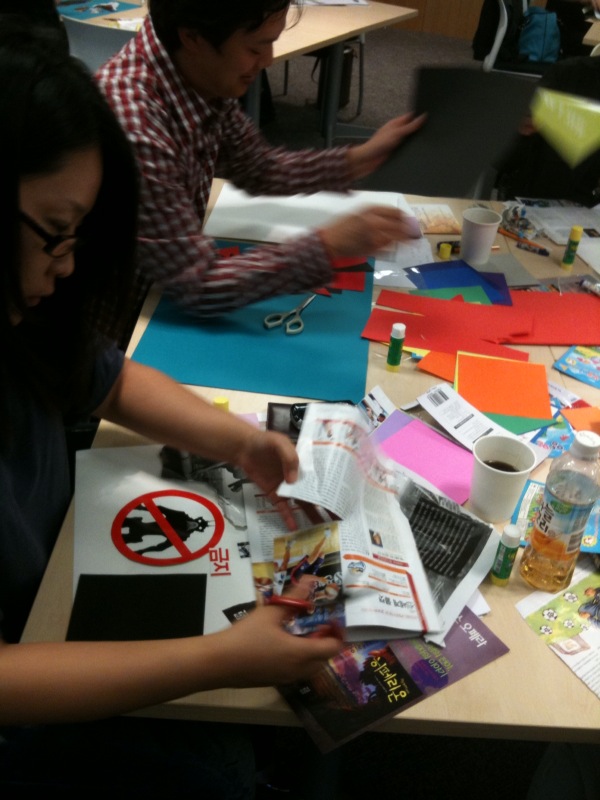 Korean Teaching Artists in an aesthetic education
Korean Teaching Artists in an aesthetic education
workshop
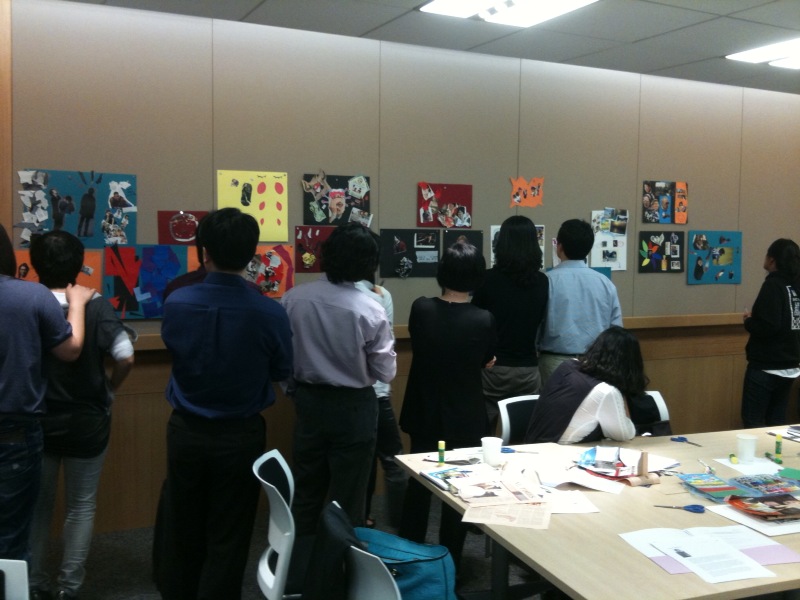
Gallery of Teaching Artists’ collages expressing reactions to injustice or pain
– preparation for engaging with Benjamin Britten’s mediations on a Dowland song
on the same subject
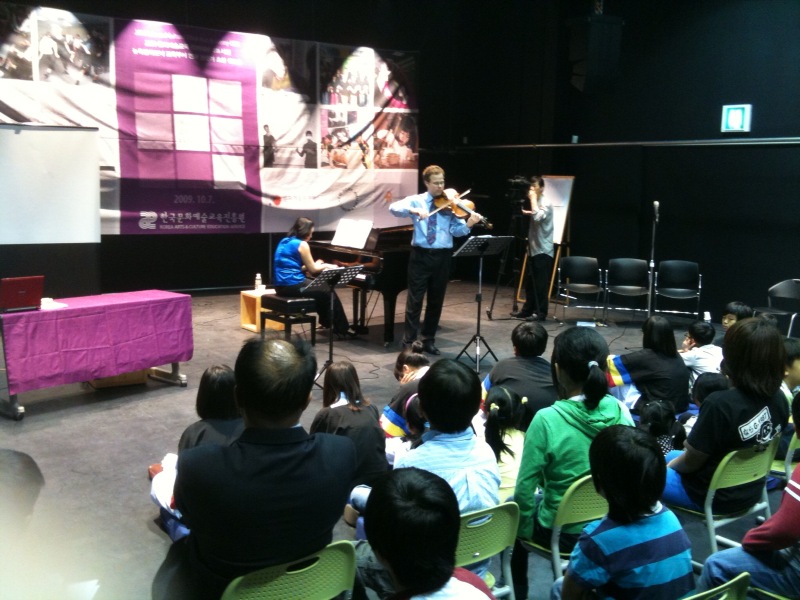
Britten’s Lachrymae for students
and parents in Incheon
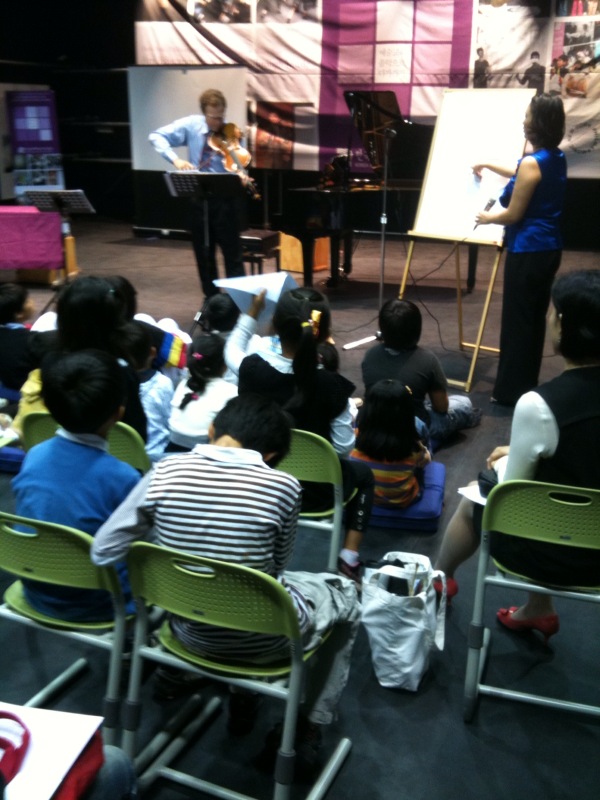
David Wallace improvising variations on the Dowland song devised on the spot by
children in Incheon
***********************************************************************************************************
Theodore Wiprud
Director of Education, New York Philharmonic
Theodore Wiprud has directed the Education Department of
the New York Philharmonic since October 2004. The Philharmonic’s
education programs include the historic Young People’s Concerts, the
new Very Young People’s Concerts, one of the largest in-school program
of any US orchestra, adult education programs, and many special
projects.
Mr. Wiprud has also created innovative programs as director of
education and community engagement at the Brooklyn Philharmonic and the
American Composers Orchestra; served as associate director of The
Commission Project, and assisted the Orchestra of St. Luke’s on its
education programs. He has worked as a teaching artist and resident
composer in a number of New York City schools. From 1990 to 1997, Mr.
Wiprud directed national grantmaking programs at Meet The Composer.
During the 1980’s, he taught and directed the music department at
Walnut Hill School, a pre-professional arts boarding school near
Boston.
Mr. Wiprud is also known as a composer and an
innovative concert producer, until recently programming a variety of
chamber series for the Brooklyn Philharmonic. His own music for
orchestra, chamber ensembles, and voice is published by Allemar Music.
Mr.
Wiprud earned his A.B. in Biochemistry at Harvard, and his M.Mus. in
Theory and Composition at Boston University, and studied at Cambridge
University as a Visiting Scholar.
September 2008
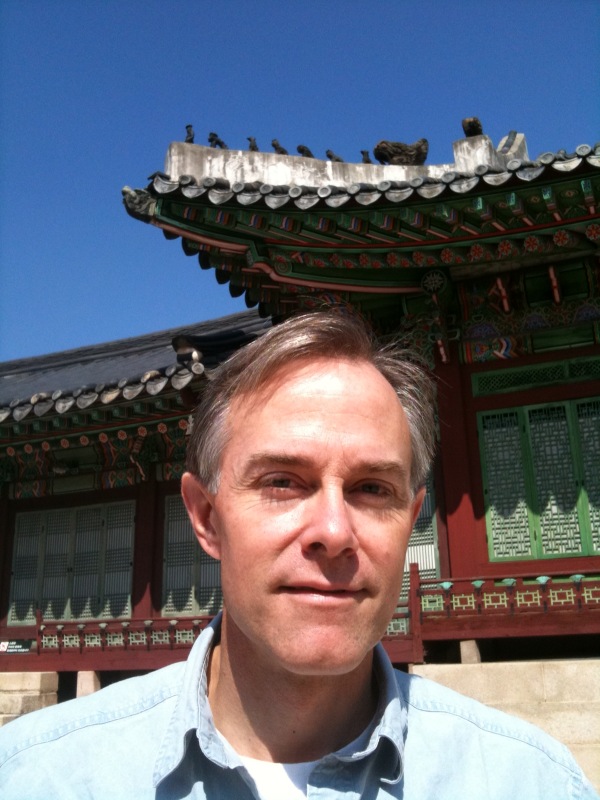




Hooray for Ted Wiprud! His essays are fascinating to read and a wonderful reminder of what we have to learn from our colleagues abroad. Wish I had been in South Korea to hear what the workshop participants composed! C
Congratulations to Ted, Jihea, and David for your wonderful work in Korea! How exciting is it to hear about all the wonderful cultural exchanges through music!